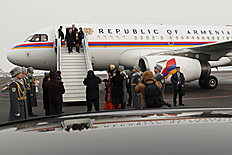 1670x1113px - 414 Kb
1670x1113px - 414 Kb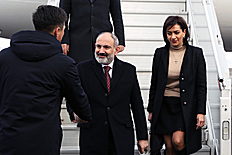 1670x1113px - 345 Kb
1670x1113px - 345 Kb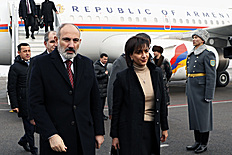 1670x1113px - 391 Kb
1670x1113px - 391 Kb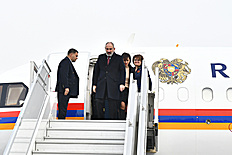 1670x1113px - 370 Kb
1670x1113px - 370 Kb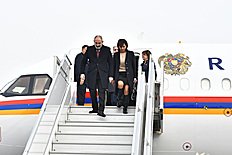 1670x1113px - 383 Kb
1670x1113px - 383 Kb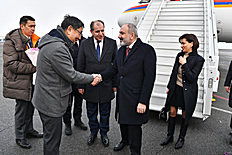 1670x1113px - 710 Kb
1670x1113px - 710 Kb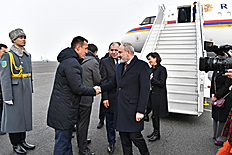 1670x1113px - 658 Kb
1670x1113px - 658 Kb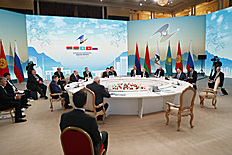 1670x1113px - 641 Kb
1670x1113px - 641 Kb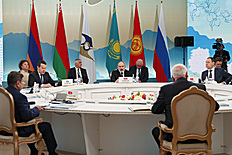 1670x1113px - 497 Kb
1670x1113px - 497 Kb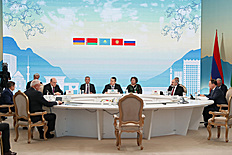 1670x1113px - 646 Kb
1670x1113px - 646 Kb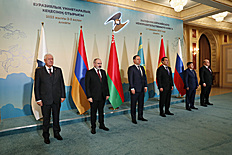 1670x1113px - 592 Kb
1670x1113px - 592 Kb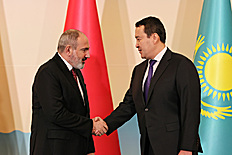 1670x1113px - 326 Kb
1670x1113px - 326 Kb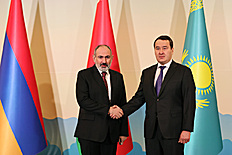 1670x1113px - 305 Kb
1670x1113px - 305 Kb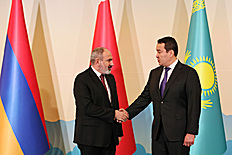 1670x1113px - 317 Kb
1670x1113px - 317 Kb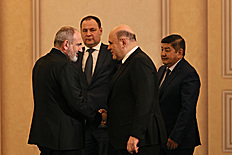 1670x1113px - 432 Kb
1670x1113px - 432 Kb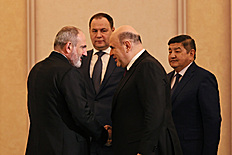 1670x1113px - 321 Kb
1670x1113px - 321 Kb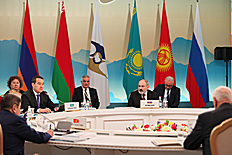 1670x1113px - 460 Kb
1670x1113px - 460 Kb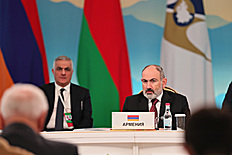 1670x1113px - 408 Kb
1670x1113px - 408 Kb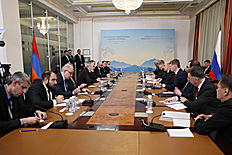 1670x1113px - 579 Kb
1670x1113px - 579 Kb 1670x1113px - 617 Kb
1670x1113px - 617 Kb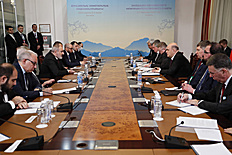 1670x1113px - 494 Kb
1670x1113px - 494 Kb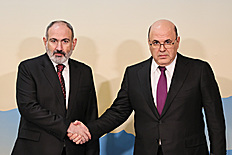 1670x1113px - 402 Kb
1670x1113px - 402 Kb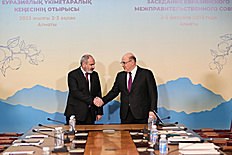 1670x1113px - 453 Kb
1670x1113px - 453 Kb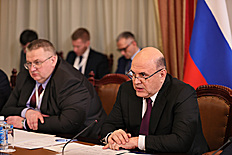 1670x1113px - 420 Kb
1670x1113px - 420 Kb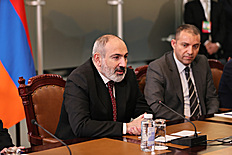 1670x1113px - 448 Kb
1670x1113px - 448 Kb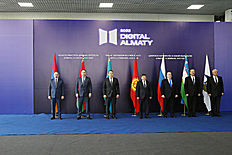 1670x1113px - 561 Kb
1670x1113px - 561 Kb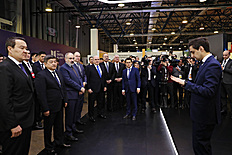 1670x1113px - 521 Kb
1670x1113px - 521 Kb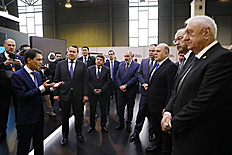 1670x1113px - 456 Kb
1670x1113px - 456 Kb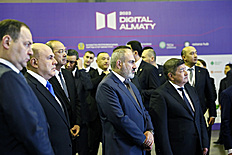 1670x1113px - 478 Kb
1670x1113px - 478 Kb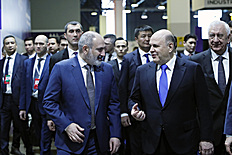 1670x1113px - 463 Kb
1670x1113px - 463 Kb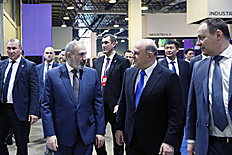 1670x1113px - 493 Kb
1670x1113px - 493 Kb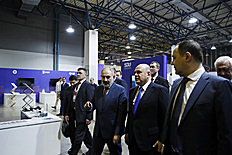 1670x1113px - 508 Kb
1670x1113px - 508 Kb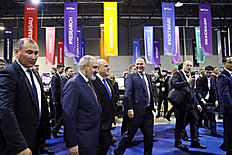 1670x1113px - 566 Kb
1670x1113px - 566 Kb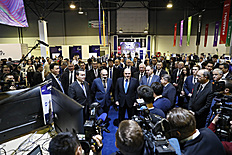 1670x1113px - 715 Kb
1670x1113px - 715 Kb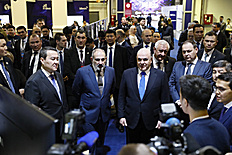 1670x1113px - 547 Kb
1670x1113px - 547 Kb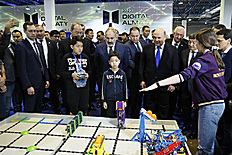 1670x1113px - 735 Kb
1670x1113px - 735 Kb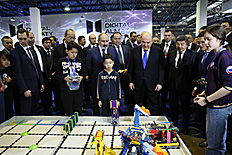 1670x1113px - 557 Kb
1670x1113px - 557 Kb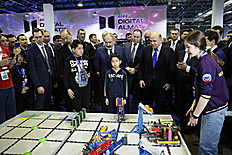 1670x1113px - 780 Kb
1670x1113px - 780 Kb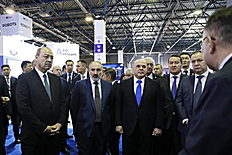 1670x1113px - 475 Kb
1670x1113px - 475 Kb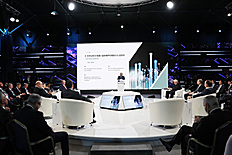 1670x1113px - 444 Kb
1670x1113px - 444 Kb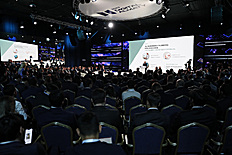 1670x1113px - 445 Kb
1670x1113px - 445 Kb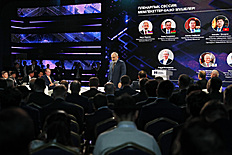 1670x1113px - 488 Kb
1670x1113px - 488 Kb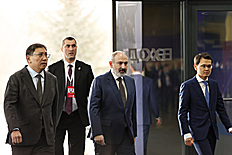 1670x1113px - 476 Kb
1670x1113px - 476 Kb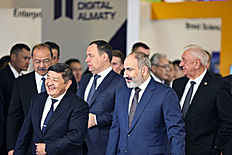 1670x1113px - 526 Kb
1670x1113px - 526 Kb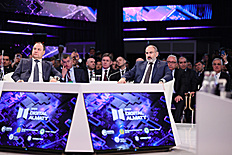 1670x1113px - 538 Kb
1670x1113px - 538 Kb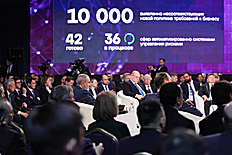 1670x1113px - 507 Kb
1670x1113px - 507 Kb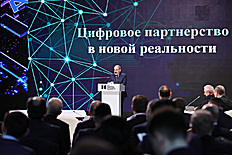 1670x1113px - 675 Kb
1670x1113px - 675 Kb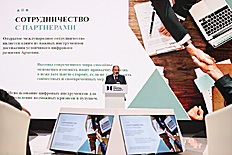 1670x1113px - 624 Kb
1670x1113px - 624 Kb 1670x1113px - 675 Kb
1670x1113px - 675 Kb 1670x1113px - 672 Kb
1670x1113px - 672 Kb 1670x1113px - 706 Kb
1670x1113px - 706 Kb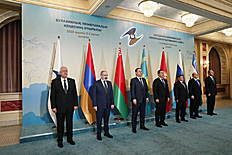 1670x1113px - 656 Kb
1670x1113px - 656 Kb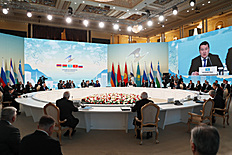 1670x1113px - 526 Kb
1670x1113px - 526 Kb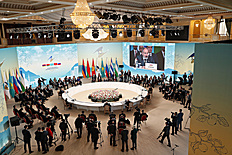 1670x1113px - 930 Kb
1670x1113px - 930 Kb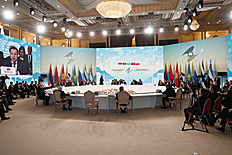 1670x1113px - 702 Kb
1670x1113px - 702 Kb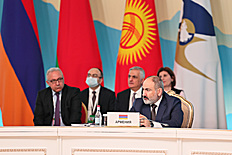 1670x1113px - 437 Kb
1670x1113px - 437 Kb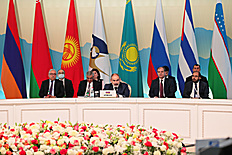 1670x1113px - 525 Kb
1670x1113px - 525 Kb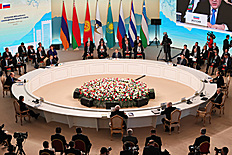 1670x1113px - 855 Kb
1670x1113px - 855 Kb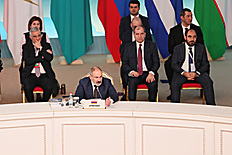 1670x1113px - 353 Kb
1670x1113px - 353 Kb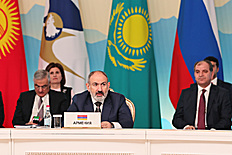 1670x1113px - 475 Kb
1670x1113px - 475 Kb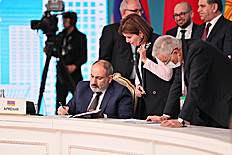 1670x1113px - 439 Kb
1670x1113px - 439 Kb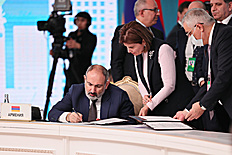 1670x1113px - 464 Kb
1670x1113px - 464 Kb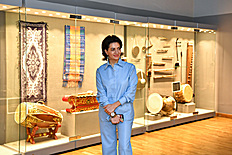 1670x1113px - 593 Kb
1670x1113px - 593 Kb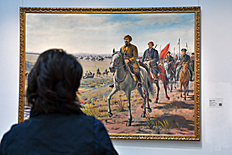 1670x1113px - 619 Kb
1670x1113px - 619 Kb 1670x1113px - 674 Kb
1670x1113px - 674 Kb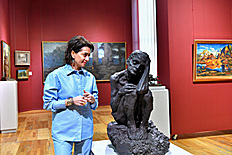 1670x1113px - 540 Kb
1670x1113px - 540 Kb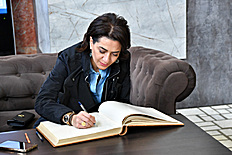 1670x1113px - 484 Kb
1670x1113px - 484 Kb
more 64 photos
Prime Minister Nikol Pashinyan arrived in Kazakhstan, Almaty, on a working visit with his wife Anna Hakobyan.
The Prime Minister will participate in the regular session of the Eurasian Intergovernmental Council and the "Digital Almaty Awards" international conference.
* * *
Prime Minister Nikol Pashinyan participated in the narrow-format session of the Eurasian Intergovernmental Council in the city of Almaty, Kazakhstan.
The Prime Ministers of the Eurasian Economic Union countries discussed a number of topical issues related to Eurasian integration. In particular, reference was made to the operation of the EAEU internal market, the financing of industrial cooperative, the development of the agro-industrial complex, and cooperation in the energy sector.
The implementation of the digital agenda, in particular, the improvement of the integrated information system of the Union, was highlighted.
The expanded-format session of the Intergovernmental Council will take place on February 3.
* * *
In the sidelines of the session of the Eurasian Intergovernmental Council held in Almaty,
Prime Minister Nikol Pashinyan had a meeting with Prime Minister of the Russian Federation Mikhail Mishustin
In his speech, the Prime Minister of Russia stated:
"Dear Nikol Vovaevich, dear colleagues,
I am happy for this new meeting.
First of all, I would like to convey to you the best wishes of the President of the Russian Federation, Vladimir Vladimirovich Putin. You recently talked with him on the phone and discussed the most important issues of our bilateral agenda.
For my part, I would like to convey my greetings to the President of Armenia, Honorable Vahagn Garnikovich Khachaturyan.
We sincerely appreciate the allied and partnering relations with Armenia. Our countries are connected by good, fraternal relations, based on the historical friendship of the Russian and Armenian peoples.
At the government level, very active work is being done in the direction of strengthening trade and economic cooperation. And, despite the difficult external situation, our cooperation is developing successfully.
Russia is Armenia's leading foreign trade partner and the main investor in the economy. Let me give examples. In January-November last year, mutual trade increased by 77% compared to 2021. It exceeded 4.1 billion USD, which for today is a record-high indicator in our mutual trade.
The volume of Russian investments is about 2 billion USD. More than 40 leading Russian companies operate in the Armenian market and are among the largest taxpayers in Armenia.
We suggest to launch new joint projects more actively. Dear Nikol Vovaevich, we discussed the industrial cooperative in detail with you a while ago. And the sectors that may traditionally be of interest, are peaceful nuclear power, energy, mining, transport, logistics and digital technology.
Practical issues are resolved at the level of the intergovernmental commission. On our side, it is led by Alexey Overchuk.
The economic cooperation program for the period until 2025 is in effect. Our cooperation is also expanding through the Russian Export Center. During 2022, we organized 24 business missions to Armenia with the participation of dozens of regions of Russia.
Armenian businessmen now have excellent opportunities to work in our market due to the withdrawal of unfriendly countries from it, I mean not only large business, but also small and medium enterprises, which will contribute to the growth of jobs.
And, of course, we traditionally attach special importance to our education. About 5,000 Armenian students study in Russian universities. The Government of the Russian Federation allocated a quota of 250 scholarships for the coming academic year.
Dear Nikol Vovaevich, we are consistently advocating the unblocking of economic and transport communications in Transcaucasia. We consider it important to ensure the implementation of the agreements reached by the leaders of Russia, Armenia and Azerbaijan. The creation of new transport infrastructure routes is in the interests of all states of the region.
And I am ready to discuss with you, dear Nikol Vovaevich, all the topical issues of our bilateral agenda."
In turn, Prime Minister Pashinyan noted.
"Thank you, dear Mikhail Vladimirovich, dear colleagues, I'm glad to see you all. You emphasized that there is a new dynamic in our trade and economic relations and mutual trade, it is true, we have recorded a good and big growth.
I have talked about it many times, that there are some objective reasons, but I want to emphasize that there is the special personal role of Vladimir Vladimirovich Putin, your personal role and the role of Russian Deputy Prime Minister Alexey Overchuk in this dynamic.
You know that unfortunately we often face logistical problems and we are very grateful that you always respond very promptly and make decisions that contribute to the quick solution of these problems.
Everything is good with us in the field of economy, you know that the Russian Federation is the key partner of Armenia in the field of security and, unfortunately, the situation is not so good with us in the field of security. You know that Lachin Corridor has been blocked for more than a month, and according to the trilateral declaration of the President of the Russian Federation, the President of Azerbaijan and the Prime Minister of Armenia, it should be under the control of Russian peacekeepers. Now it turns out that the Lachin Corridor is not under the control of Russian peacekeepers, which creates specific problems.
Now we can say that a humanitarian crisis is escalating in Nagorno Karabakh. It is a very important and sensitive issue in our bilateral relations. Unfortunately, we have certain issues in the field of security also in the multilateral format, in the CSTO, and we hope that we will manage to solve all these issues. We are working, we are interested, but unfortunately, frankly speaking, we see no progress in those directions.
During the CSTO Yerevan summit, it seemed to us that we had reached concrete agreements regarding the opening of regional economic and transport infrastructures. Vladimir Vladimirovich had arrived with specific proposals and we agreed on aspects of those agreed options for opening up regional infrastructure, but unfortunately, these agreements could not be implemented later due to the unconstructive and counterproductive position of the Republic of Azerbaijan.
But you know that we are not only ready, but are also interested in the opening of transport and economic infrastructures, because in fact the Republic of Armenia has been under Azerbaijani blockade for the last 30 years and we are of course very interested in opening all transport and economic infrastructures in the region.
We believe that this should happen in accordance with the legislation of the Republic of Armenia. I mean point 9 of the trilateral declaration of November 9, 2020, which we made more concrete in the trilateral statement of January 11, 2021. We have repeatedly said that in the implementation of point 9 of the trilateral declaration, we must act in accordance with the legislation of the countries through the territories of which those infrastructures pass.
Of course, the agenda of our relations is very broad and I am sure that today we will talk about all issues."
* * *
Prime Minister Nikol Pashinyan participated in the plenary session of the digital forum "Digital partnership in the new reality" in Almaty together with the Heads of Government of the member states of the Eurasian Economic Union, as well as the Prime Minister of Uzbekistan, an observer state in the EAEU.
First, the joint video-shooting ceremony of the Prime Ministers of EAEU countries took place, then they made a short tour of the exhibition booths dedicated to the high-tech sector opened within the framework of the conference. Armenia is also represented at the exhibition with a separate pavilion.
Prime Minister Pashinyan delivered a speech at the opening of the conference, in which he stated:
“Dear colleagues,
Dear forum participants!
First of all, I want to thank the Kazakh side for organizing the forum, which has become an effective platform for discussing digitalization issues and prospects for digital development.
For the Republic of Armenia, the development of the digital economy has been and remains one of the most important priorities. The turnover in the IT sector of the Republic of Armenia in 2022 increased by more than 50%, and the share of the information technology and communications sector in Armenia's GDP is consistently growing. For our part, we provide sector-specific state support to IT business. Last year, more than 1,000 startups received significant tax breaks.
At the same time, the issue of forming a single digital space on the territory of the Eurasian integration remains important for us. In this context, I would like to note the relevance and high demand for the tools of the interstate information exchange system, the creation and development of digital projects with an integration effect.
One of the foundations of the Union’s digital agenda should be the widespread use of the “Regulatory Sandbox” regime. Thanks to the use of specific legal regimes of “Regulatory Sandboxes”, the timeframe for the implementation of digital transformation projects will be reduced, and the quality of the submitted projects will increase, which in turn will accelerate the launch of digital projects of a pan-Eurasian scale.
At the same time, it is important to note that when forming a single digital space, one should not forget about building an integrated data protection system.
In this context, the acceleration of work on the conclusion of an international agreement on data circulation remains particularly relevant.
Colleagues,
After our meeting at the forum in Almaty in 2021, our government adopted a five-year Digitalization Strategy for Armenia, which determined the main directions for the formation of a digital economy and innovative development of the country.
I would like to note that before the adoption of the strategic document, we already had extensive experience in the development of digital services, but the Strategy will ensure the creation of a consolidated digital ecosystem in the country.
The main goals we are pursuing are:
1. Ensuring efficient and effective public administration based on the maximum use of data from information systems and a big data.
2. Improving the efficiency and modernizing the private sector of the economy through the development of platforms and digital services.
3. Support the development of digital skills and abilities for the wide spectrum of society.
At the same time, all 3 directions are interconnected and are complementary.
The events of the recent years have shown that modern challenges can instantly change the usual course of our life in an undesirable direction, if we fail to take joint and timely measures. It is obvious that there is practically no country capable of facing global challenges on its own. The coronavirus pandemic clearly showed this.
We all faced the same challenges, and we had to work together to overcome the consequences of the lockdown and the pandemic itself.
We began to use digital mechanisms more widely and deeply to overcome both the consequences of the pandemic and possible crises of a similar nature in the future.
In this context, I would like to note that international and regional cooperation is one of the critical tools for achieving the goals of Armenia's sustainable digital development.
The Government of Armenia cooperates at the international level, actively cooperates with the private sector and international organizations to find new digital solutions. One of such solutions for the Eurasian Economic Union was the mobile application "Travel without Covid-19" developed by the Fund for Digital Initiatives of the Eurasian Bank Development, which ensured the restoration of free movement of citizens between our countries.
The 5 million tests uploaded into the application means 5 million trips. indeed, a huge figure. The application became reality thanks to the active support of the governments of the Russian Federation and the Republic of Armenia, which launched a pilot project that became a full-fledged project involving nine countries.
In my opinion, despite the weakening of the pandemic and the restoration of free movement, the "Travel without Covid-19" application creates a good basis for the development of cross-border digital medicine, information exchange and digitization of "medical cards", in accordance with national requirements and with full protection of personal data.
I propose to start discussing the perspective of using the application as an "epidemiological shield" tool and a reliable mechanism for the transmission of information of medical significance.
Dear forum participants,
Today, I would like to draw our attention to another relevant digital tool that enables citizens, businesses and state bodies of the EAEU countries to interact when organizing labor activities in our countries. I am talking about the digital platform "Work in the EAEU", developed by the Fund for Digital Initiatives as part of the implementation of the idea of Mikhail Vladimirovich Mishustin.
The Russian section of the mobile application "Work in the EAEU" began to function in 2022, and I want to inform you that today the first full version of the national section of the Republic of Armenia is also available in the application.
Users of the application can already find vacancies, respond to them, use the services "helper", "answers to frequently asked questions", get acquainted with regulatory information, find subdivisions of authorized bodies, contact information and so on.
In the Armenian national section of the "Work in the EAEU" application, the main existing state digital services are already available, such as the unified e-request portal, which provides not only the opportunity for individuals and legal entities to send requests to more than two hundred state bodies and subordinate organizations of Armenia, but also monitor the process of reviewing the request and receiving a response. In Armenia, about 60,000 users have already used this service, and the total number of requests has exceeded 300,000.
The next digital service, integrated into the application "Work in EAEU" is workpermit.am, with the help of which work permits and residence permits are provided in Armenia. The entire process is based on one application submitted on the online platform.
This digital instrument provides coordinated interaction of five state bodies involved in this process. Also, using the digital service, one can get a free card certifying the legality of residence in the Republic of Armenia on the basis of an employment contract for citizens of EAEU countries and their families.
Other government and commercial services will gradually join the platform.
At the same time, I want to note that our national section takes into account the peculiarities of our market and is not a copy of the Russian section. Thus, we are developing the platform "Work in the EAEU" with a new added value.
Armenia and Russia were the first participants of the platforms "Travel without Covid-19" and "Work in the EAEU". Joining the platforms shows the efficiency of interaction and the cumulative effect of the integration of advantages of national services. And we support the proposal of the Government of Russia to join the project of creating national sections and support the attraction of highly qualified personnel for the sake of the growth of our national economies and the economy of the EAEU as a whole.
Thank you for attention”.
Prime Minister Pashinyan and other Heads of Governments presented awards to the best participants of the forum.
* * *
Prime Minister Nikol Pashinyan took part in the extended-format session of the Eurasian Intergovernmental Council in Almaty. The event was attended by the Heads of Government of EAEU countries, as well as the prime minister of Uzbekistan and the diplomatic representative of Cuba in the Union.
At the session, Prime Minister Pashinyan made a speech, in which he specifically noted:
“Dear Heads of Government,
Dear members of delegations,
I am pleased to welcome the participants and guests of this year’s first session of the Eurasian Intergovernmental Council.
Let me start my speech with words of gratitude to Alikhan Smailov for the invitation and for organizing today's meeting at a high level.
Taking this opportunity, I want to wish the presiding party and personally to Mikhail Mishustin fruitful work and success in the implementation of the priority directions outlined by the Russian presidency.
I sincerely welcome the Prime Minister of the Republic of Uzbekistan Abdulla Aripov and the honorable representative of Cuba, confirm my readiness to develop effective cooperation with the observer states.
Before moving on to the issues of today's agenda, I would like to note that despite the geopolitical tension, mutual trade in the Union continues to demonstrate positive dynamics. The trade turnover between Armenia and the EAEU states in January-November 2022 increased by more than 90% compared to the same period of 2021 and amounted to 4.6 billion US dollars. At the same time, import by country of origin of goods increased by more than 50%.
Dear colleagues,
For the further development of the Union, we need to continue systematic and consistent work based on a solid foundation of internal capacities and resources aimed at ensuring economic development, increasing the competitiveness of national economies and the well-being of our citizens.
To achieve these goals, it is important to create favorable conditions for business, to work on eliminating barriers, to increase cooperation in the field of entrepreneurship.
Of course, measures aimed at supporting producers at all stages of production still have a decisive role.
In this context, I would like to note the importance of speedy development and adoption of legal acts aimed at introducing mechanisms for financial support of industrial cooperative projects with integration potential.
The development of this direction, according to our estimates, will allow industrialists to concentrate their efforts on their own production in such branches of economy as mechanical engineering, radio electronics, aircraft construction, software production, pharmaceutical and medical industry.
The formation of the competitive industry of the Union is completely determined by the level of technological independence and the dynamics of the introduction of new technologies. These are the undisputed priorities of the EAEU in the near and medium term.
Strengthening the technological independence of EAEU member states is directly dependent on the transition to a new technological system and cannot be implemented all at once. It requires defining strategy, stages, expenditures that depend on the level of technological development of EAEU industries and, as a result, the transition will require the modernization of existing productions, as well as the creation of new innovative sectors of industry.
It is quite obvious that for these purposes, a technological forecasting system should be established in the Union for the timely identification of the most promising trends in the field of technological development. At the same time, an important element of interaction can be the creation of a data bank of the best available technologies.
Dear colleagues,
I want to note that we also attach great importance to the development of local and pan-EAEU systems of food safety.
We believe that the activation of cooperation on the creation of a system of collective food security of the EAEU member states will in the future allow to increase the efficiency of the use of available resources, restrain inflation, ensure the availability of food and activate mutual trade.
I consider the formation of common markets of energy resources to be another important component of the integration cooperation of the EAEU.
In this context, I would like to underline our interest in reaching consensus as soon as possible on the unregulated issues of the draft international treaty on the formation of a common gas market and once again confirm our readiness for a constructive approach for their solution․
Within the framework of the issues of the EAEU common electric power market, I consider the flexible and multi-vector approaches laid down in the basis of the “Rules for Access to Interstate Electricity Transmission Services” to be relevant for Armenia.
In particular, the Rules will make it possible to ensure connection to the energy systems of the EAEU member states through a country that is not a member state of the Union (in our case, through Georgia), thereby creating technical and legal prerequisites for concluding mutually beneficial market contracts.
Dear meeting participants,
In order to fully launch the integrated information system of the Union, we need to synchronize our actions in this direction, which will allow us to form a reliable “digital framework” to ensure the freedom of movement of goods, services, capital and labor.
The development of the digital economy and the introduction of digital technologies is an objective necessity for the formation of a single digital space. In this context, I would like to note the relevance and high demand for the tools of the interstate information exchange system, the creation and development of digital projects with an integration effect.
And irrespective of the achievements, we need to constantly review and expand the priorities of the digital agenda. In this context, I would like to note that the Almaty Digital Forum has become one of the effective platforms for a comprehensive dialogue with interested participants to discuss issues of digital transformation and prospects for digital development.
Dear colleagues,
In conclusion, I would like to wish us all success and fruitful work and once again confirm the readiness of the Armenian side to make efforts in implementing the priority directions of Eurasian integration.
Thank you for attention”.
The Prime Ministers of the Eurasian Economic Union countries discussed a number of topical issues related to Eurasian integration. In particular, reference was made to the operation of the EAEU internal market, the financing of industrial cooperative, the development of the agro-industrial complex, and cooperation in the energy sector.
The implementation of the digital agenda, in particular, the improvement of the integration information system of the Union, was highlighted.
Minutes of decisions taken at the session were also signed. The next session of the Eurasian Intergovernmental Council will take place in June in Sochi.
Prime Minister Nikol Pashinyan's wife, Anna Hakobyan, visited the Museum of Folk Instruments of Kazakhstan and the State Art Museum in Almaty, toured the exhibition halls and got acquainted with the presented samples.
PM Pashinyan’s working visit to Almaty is over.